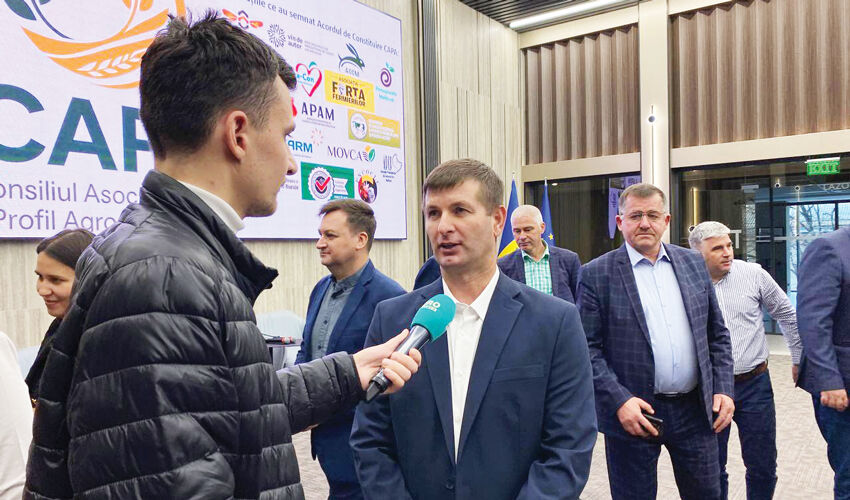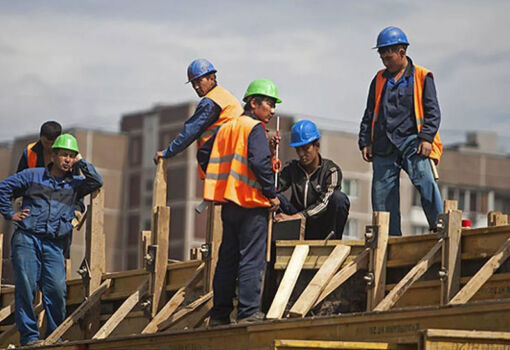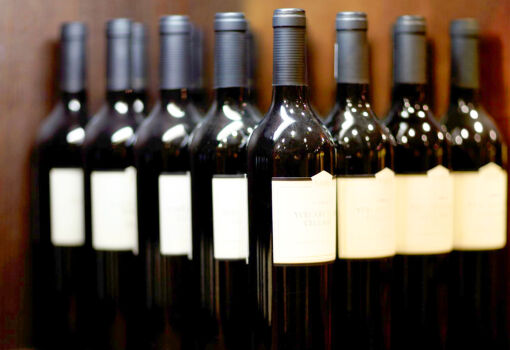
Last week, 16 non-governmental organizations of Moldovan agricultural producers and processors held a constituent meeting and signed an agreement on the establishment of the Council of Agrifood Associations (CAPA). The leaders of these organizations alone filled the not insignificant presidium of the solid conference hall, but behind each of them there are hundreds and thousands of adherents. Who are all these people?
At the very least, they are very different. The Council unites associations of both general corporate (for example, the Federation of Agricultural Producers of Moldova FARM) and branch (Association of Sheep and Goat Producers) levels. There are both “pure” agrarians (e.g., the Association of Berry Producers “Pomușoarele Moldovei”) and equally “pure” processors (the Association of Processors from the agri-food industry Speranța-Con). Both livestock and crop producers are represented in the council, both large-scale (e.g. poultry farmers) and small-scale (rabbit farmers) industries.
Sergiu Vesca (Executive Director of the National Federation of Farmers of Moldova) was elected as Chairperson of CAPA and Marina Albu (Chairperson of the Rural Community Development Network) was elected as Secretary.
It is also important that among the founders of CAPA there are associations that recently were opponents of each other in public dialog. In particular, the Pork Producers Association and the Patronage Association of the Meat Processing Industry. The executive director of the latter, Caroline Linte, emphasizes that the dialogue on the creation of the SARA Council had been going on for almost a year. The fact that the participants in the discussion not only managed to keep it going for such a long time, but also to bring it to its logical conclusion, speaks volumes.
“Democracy is a constant plebiscite.” That is, the ability to hear and listen to the opponent, to find mutually beneficial and workable solutions. And if so, then “let a hundred flowers bloom, let a hundred schools compete”. Characteristically, the decisions of the CAPA Council will be taken unanimously, i.e., “with full opposition of the parties”.
According to the founding document, the CAPA Council is apolitical. But it includes Forța Fermierilor, an association that many perceive as oppositional to the ruling political party (despite the organization’s leadership’s declared lack of political ambitions). Presumably, the other SARA co-founders generally agree with Forța Fermierilor’s self-assessment. Again, according to the founding documents, the main goal of the organization is representation in a constructive dialogue with the Moldovan authorities.
At this point, it makes sense to take a step aside to see from the outside who is not among the members of the CAPA Council. At first glance, there are no very noticeable organizations: Moldova Fruct Association and associations of winegrowers, as well as the Association of Grain Exporters Agrocereale.
There are several versions of why they are not included in the new council. One of them was voiced by the chairman of Moldova Fruct, Vitalii Gorinchoi, in a conversation with a Logos Press correspondent. According to him, the organization he heads accepted the invitation to engage in a dialogue (which, by the way, was conducted both offline and online – within a specially created group in a messenger, which is also a trend of the time). However, at a certain stage, the leadership of this organization had a disagreement with other members of the initiative group about how the organizational structure, management and work processes of the future CAPA Council should be structured.
Moldova Fruct itself has what today is commonly called “expertise”: a staff of specialists in marketing, agro-technology, communications, etc. Obviously, all this requires resources, including financial resources, as well as a system of planning, decision-making, reporting and other things. The administration of Moldova Fruct would like to see all this in the new organization. Moreover, Moldova Fruct (as well as Agrocereale) is backed by a large agribusiness, which has already mastered the “game of exporting to the European Union” and perceives European integration in a down-to-earth, applied sense: turnover of goods, money, and documents.
However, some leaders of associations claim that they participated in the creation of CAPA because they perceive it as a discussion platform aimed at identifying (jointly by the Moldovan and EU authorities) the best solutions for Moldova in its European integration process. At the same time, they are against giving CAPA an official (registered with the relevant authorities) legal status. Of course, the regulations of the Council presuppose the existence of formal governing units and working groups. Nevertheless, there is an impression that the structure is more aimed at consolidated influence (on local functionaries and European Commissioners) than at routine work “for a salary”.
However, at the stage of founding, the SARA initiative group requested a package of documents from future members, including “on the ultimate beneficiaries of the organizations they represent. Behind this, we must assume, lies another layer of democratic values: “trust but verify. The more so because some seemingly very solid associations did not find it possible to provide the information requested by the initiators of the Council.
Finally, during the process of joining or not joining the CAPA Council, the usual but fundamental mismatch of personal and collective characters played a role. Here, too, it is worth taking another step to the side.
Not only agrarians and processors can play “confederation”, but also power structures. A few years ago, the then leadership of the Ministry of Agriculture and Food Industry MAIA for lack of proper loyalty, in fact, buried the system of interprofessional associations and councils on commodity lines under the Ministry, provided by the law on the organization and functioning of agro-food markets. However, MAIA management still needs loyal partners in the “social and professional” dialog. Consequently, the idea of creating Chambers of Agriculture was born. For example, as in Austria. In order to cooperate with the authorities in the process of formation of agricultural policies and European integration.
It is still unclear to many external observers exactly how associations of agro-industrial producers and rural activists, as well as their council, will differ from the above-mentioned Chambers of Agriculture. Probably, also for this reason, the leadership of the Ministry of Agriculture and Food Industry MAIA did not ignore the constituent assembly of the CAPA Council – it delegated to this event a representative in the rank of state secretary, just on the issues of European integration. After all, only well-organized chaos can be worse than chaos.

